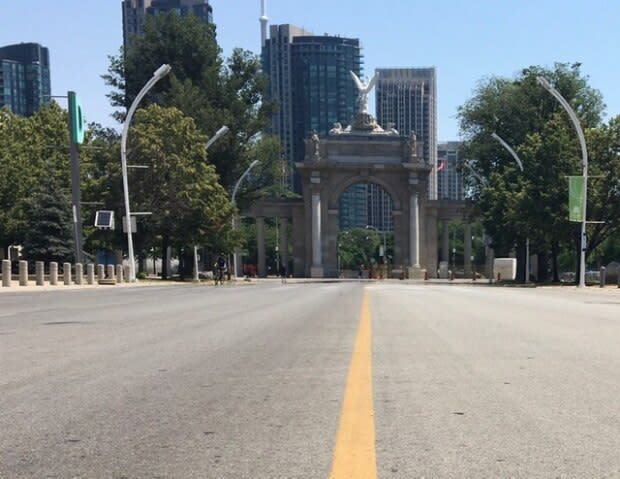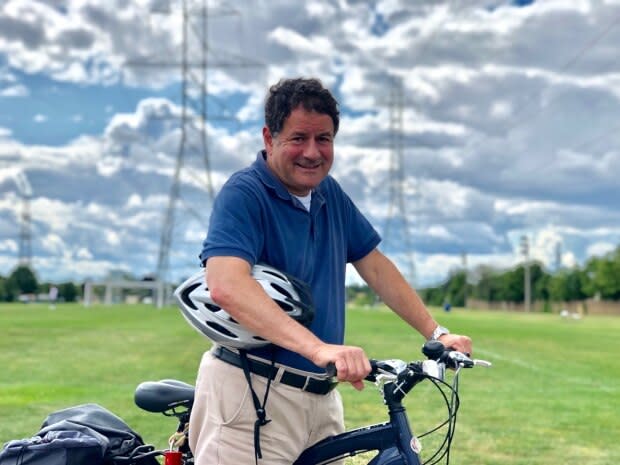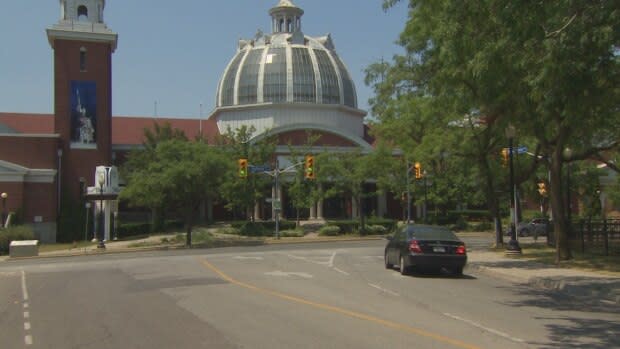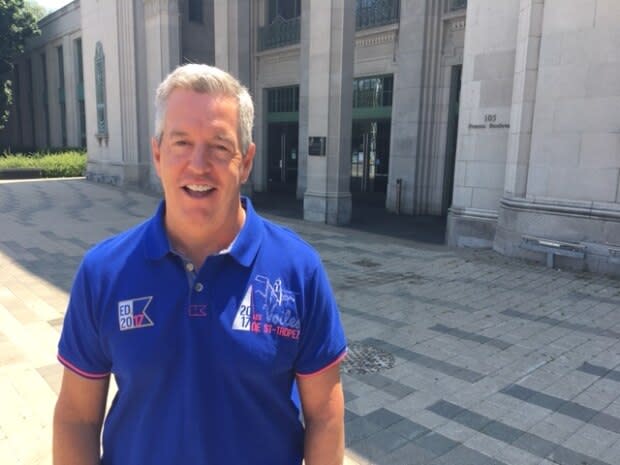Exhibition Place could become testing site for latest transport innovations, CEO says
The CEO of Exhibition Place and a veteran city councillor are touting a plan to make Toronto a hub for the world's most futuristic innovations in transportation.
They want to try out self-driving cars; "smart" signals that can sense and then adjust to traffic flow; autonomous snowplows — even robotic mail delivery systems — in what city staff are calling a "Transportation Innovation Zone." on the CNE grounds. City council's infrastructure committee will discuss the idea Thursday.
"We have the ability to look at it, test it, and trial it," Exhibition Place CEO Don Boyle told CBC Toronto.
"All those things that you couldn't otherwise do in the main core of a city, we could do here at Exhibition Place, so we're really excited."
Boyle said the grounds have 34 active intersections that are often lightly used, making it the ideal place to test new ideas. As well, he said, Exhibition Place officials have the luxury of being able to shut down some routes without city permission.

A total of 39 pedestrians died on Toronto's streets in 2019, and Coun. James Pasternak, who chairs the city's infrastructure committee, said the testing ground would be all about making the streets safer for all users.
"They are pedestrians at risk, motorists at risk, cyclists at risk. So this would very much support Vision Zero 2.0," Pasternak said, referring to the city's plan to cut the annual number of traffic-related deaths to as close to zero as possible.
"And now we want to launch Vision Zero 3.0," he said. "And a lot of that is introducing new strategies for crosswalks, for signalled intersections, for automated speed control."
He also said it's a great opportunity for the city to establish itself as a world leader in transportation technology.
"There's no doubt Toronto has some catching up to do when it comes to technologies and strategies on traffic calming around the world," he said. "But we need a testing ground first, and the CNE offers that.

"We want people in a few years time to come and see what we're doing down in the CNE because I think Toronto can be a leader in traffic safety and traffic management."
Boyle said the broad, often clear Princes' Boulevard would serve as the pilot project's main stage. He said he expects the signalled intersection near the Liberty Grand, in the ground's west end where Dufferin Street, British Columbia Road and Saskatchewan Road meet, would also be heavily used as a test intersection for the innovations.
If the committee green-lights the idea, it goes to council later this month, and Pasternak figures the testing ground could be in place in a year.
"I think it's the only way to go," he said.
"Only with new technologies and new approaches can we manage the traffic and safety in our various neighbourhoods. We must try out these new technologies, see if they work in this incubator at the CNE, and then roll them out to neighbourhoods across the city."

Boyle said ideas generated in the incubator could become permanent at the CNE.
"After a TFC soccer event here, where people are backed up and yet there's no traffic moving in the other direction, traffic signals would stay green the entire time, and [the signals would] learn those types of patterns."
The public would also be invited to come and watch the experiments unfold, he predicted, giving people a glimpse of how they might be moving around 10 years from now.
In some scenarios, "nobody would actually own a car," he said.
"[Self-driving]cars will be coming to you. You'd have your use for three or five or 10 minutes and then it would go and service other neighbours within your community."

Pasternak said he believes the idea will get plenty of support from other councillors.
"Toronto doesn't have to be a follower; it can be a leader ... and this provides a great opportunity," he said.
"We're a fast growing city that needs new ideas for safety."


